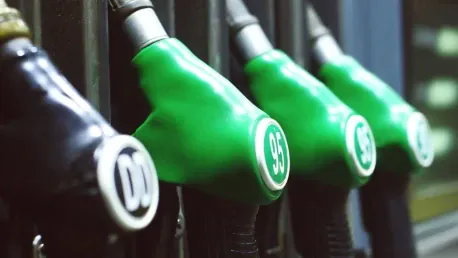The synthetic fuel industry, particularly in aviation and shipping, is facing significant hurdles despite the growing emphasis on green alternatives. Ørsted, one of the world’s most renowned green energy companies, recently halted the construction of an e-methanol plant in Sweden. This decision reflects the broader challenges hampering the synthetic fuel sector’s progress. The cancellation highlights economic viability issues and fluctuating demand that continue to plague the industry.
The Complex Business Case for Synthetic Fuel
Ørsted’s e-methanol project was aimed at generating 55,000 tons of green methanol annually using hydrogen and CO2. However, CEO Mads Nipper cited a weak business case as the primary reason for cessation. Factors such as lower-than-expected demand for green methanol, high technology costs despite subsidies, and increased interest rates and construction expenses contributed heavily to the project’s halt. This scenario epitomizes the steep financial barriers making synthetic fuel production less attractive compared to fossil fuels.
These concerns are not isolated to Ørsted. Shell also decided to halt constructing a biodiesel plant in Rotterdam, signaling a strategic focus on projects with higher returns. Shell’s CEO, Wael Sawan, prioritized enhancing shareholder value over renewable ventures, reflecting skepticism within the broader market about the financial feasibility of synthetic fuels.
Economic Viability: A Critical Oversight
Recent developments highlight a critical oversight in many transition strategies: economic viability. While the shift to a net-zero economy has received broad support, the economic framework underpinning this transformation remains shaky. Optimistic projections often fail to consider the genuine financial barriers companies face, leading to a muddled transition landscape.
For instance, synthetic fuels are notably more expensive than fossil fuels across sectors. This high cost creates significant headwinds for their adoption in industries like aviation and shipping, where synthetic fuels can be up to ten times more expensive. The financial strain requires substantial subsidies and supportive policies which are, so far, insufficient to offset the economic disadvantages.
The Multistage Process to Greener Fuels
The transition to greener fuels involves a multistage process. Firstly, the industry focused on inventing alternative fuels, demonstrated through successful developments in sectors like shipping and aviation. However, the next stage—market introduction—presents formidable challenges. Companies must navigate market recognition, support for successful initiatives, and deal with underperforming projects. That even top-tier companies like Ørsted struggle during this phase raises alarm bells about the industry’s future.
Notwithstanding these difficulties, some companies are not deterred. Maersk, for instance, continues to build alliances to expand the use of methanol and ammonia as fuels. Additionally, previous dual-fuel vessel orders, which are only now becoming operational, offer a glimmer of hope for sustainable fuel adaptation in this transition stage.
The Potential Trend of Project Cancellations
The industry needs to consider if recent project cancellations by Ørsted and Shell represent a broader trend. If these examples are indicative of a more widespread issue, the sector’s ability to progress to the third phase—expanding greener fuel and securing government policy support—could be severely impeded. This ripple effect would stall the establishment of sustainable fuels as a market norm and delay reducing reliance on fossil-based economies.
Moreover, the implications extend beyond aviation and shipping. Other greentech projects are also experiencing setbacks. Analysis from the Financial Times shows that around 40% of significant greentech investments under the US Inflation Reduction Act have been delayed or paused. These investments span electrolysers, electric vehicles, renewables, sustainable fuel, and semiconductors, underscoring the pervasive difficulties in the low-carbon economy transition.
Routine Correction or Emergent Trend?
The synthetic fuel industry, especially in aviation and shipping, is grappling with major challenges despite the push for greener alternatives. A significant example of these hurdles is the recent decision by Ørsted, a leading global green energy company, to cease the construction of an e-methanol plant in Sweden. This move sheds light on the broader difficulties that continue to impede the progress of synthetic fuels. Economic viability is a paramount concern; the costs associated with synthetic fuel production are often prohibitive, making it challenging to compete with traditional fossil fuels. Fluctuating demand also adds to the uncertainty, as industries sometimes hesitate to fully commit to synthetic fuels due to their high costs and varying price points. Beyond these factors, regulatory environments and technological advancements also play pivotal roles in shaping the industry’s future. The halt in Ørsted’s project serves as a stark reminder that while the transition to green energy is essential, it is fraught with intricacies that require comprehensive strategies and solutions to overcome.









